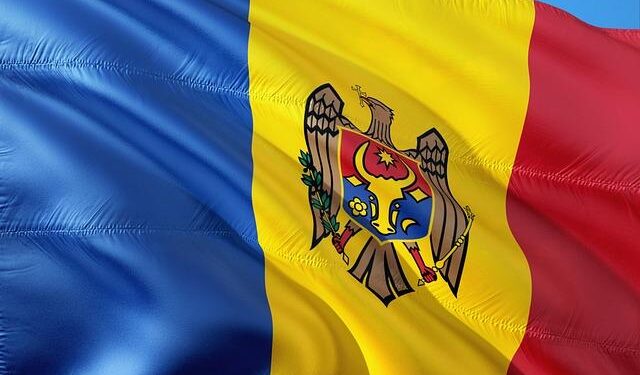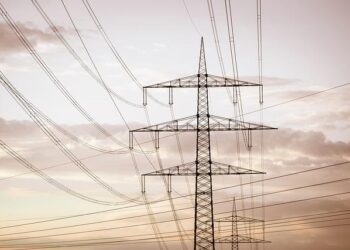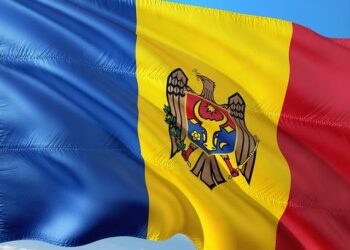Moldova’s Geopolitical Crossroads: Navigating Between East and West
Located in a region marked by complex geopolitical rivalries, Moldova finds itself at a crucial crossroads, shaped by Western ambitions and the persistent influence of Russia. Recent analyses featured in IPS Journal delve into the political maneuvers and societal perspectives that shape Moldova’s national identity and its international relations. As Russia amplifies its efforts to consolidate power over former Soviet states, the implications for Moldova are critically important. This article explores insights from key political leaders and analysts on how Moldova manages its ties with Moscow while striving for closer connections with Western nations.
Russian Influence: Exploring Political Dynamics in Moldova
The political landscape of Moldova is deeply influenced by Russia’s ongoing presence, revealing a narrative filled with strategic manipulation aimed at maintaining regional dominance. Analysts suggest that the Kremlin employs various tactics to bolster its grip on the nation, including diplomatic pressure, economic dependencies, and cultural ties. These strategies ensure that Moldova remains aligned with Russian interests even as it seeks deeper integration with Western institutions.
| Tactic | Description |
|---|---|
| Political Manipulation | Utilizing pro-Russian groups to influence governmental decisions favoring Moscow. |
| Economic Leverage | Exploiting energy supplies and trade agreements to create economic reliance. |
| Cultural Engagements | Promoting Russian language usage and cultural initiatives to encourage alignment. |
The ramifications of this influence extend beyond mere politics; they significantly shape public sentiment and national identity within Moldova. As pro-Russian sentiments gain traction among certain demographics, there exists an evident tension between aspirations for European integration versus nostalgic affiliations with Russia. The stakes are high as this struggle reflects broader geopolitical conflicts currently shaping Eastern Europe.
Economic Vulnerabilities Affecting Moldova’s Autonomy
Moldova‚Äôs economy presents a complex web of dependencies that pose serious challenges to its sovereignty. Over time, the country has become increasingly reliant on external economic relationships‚ÄĒespecially those linked to Russia. Key factors contributing to these vulnerabilities include:
- Energy Supply Risks:A significant portion of energy resources is imported from Russia, making Moldova susceptible to price fluctuations and supply disruptions.
- Dysfunctional Trade Relations:The Moldovan export market heavily relies on Russian demand, creating an unbalanced trade relationship favoring Moscow.
- Lack of Foreign Investment:The inflow of foreign direct investment remains limited due primarily to ongoing political instability coupled with reliance on ineffective economic partnerships.
- Sustainable Energy Initiatives:Investments in renewable energy sources can reduce reliance on external suppliers.
- Diverse Economic Alliances:Actively pursuing trade agreements across multiple countries will help balance economic strategies.
- Empowering Local Enterprises:Enhancing investment opportunities for domestic businesses will strengthen local economies against external shocks.
The execution of such strategic initiatives not only aims at enhancing economic independence but also protects political autonomy‚ÄĒensuring that national policies reflect local aspirations rather than foreign interests.
Approaches to Strengthening Independence & Regional Collaboration in Moldova
Aiming towards enhanced independence while reinforcing regional alliances requires several strategic approaches.
First, strengthening democratic institutions is essential;This foundation supports stability within governance structures.
Efforts should focus on increasing clarity within public management systems which can build citizen trust alongside reinforcing national identity.
Moreover, promoting inclusive development across marginalized areas can mitigate vulnerabilities susceptible exploitation by outside forces;This approach fosters resilience against potential threats.
Collaboration among neighboring countries plays a critical role too; establishing cooperative defense frameworks through military collaborations can deter aggressive actions from surrounding nations;This includes joint training exercises designed specifically around mutual security concerns.
Additionally, actively engaging within multilateral trade agreements under frameworks like EU or Eastern Partnership could diversify trading routes thereby reducing over-reliance upon any one country;This strategy enhances overall economic stability while fostering diplomatic relations necessary for securing sovereignty amidst shifting global dynamics.
By nurturing robust diplomatic connections,Moldova stands poised not only protect itself but also contribute positively toward regional equilibrium.
Concluding Reflections: Navigating Complex Geopolitics Ahead!
In conclusion,the intricate interplay between geopolitical influences surrounding Moldovapoints toward ongoing tensions between Eastern affiliations versus Western ambitions.As highlighted through various interviews,the nation grapples continuouslywith definingits ownidentityandstrategicalliancesamidst mounting pressuresfromRussia.The perspectives shared illuminate complexities inherentwithinMoldova’s situationwherepoliticalinfluencesandeconomicdependenciesoften skewthebalanceofsovereignty.Moving forward,the ramifications stemmingfromthese dynamicswill shape not justMoldovafuturebut reverberate throughout theregionprompting reevaluationsofinternationalengagementsanddiplomaticrelations.As global observers remain vigilant,Moldo faces challenges aheadin forginga paththat honorsitsaspirationswhile adeptly navigating turbulent watersofglobalpolitics.
Pursuing greater autonomy necessitates decisive actions from Moldovan authorities aimed at diversifying international partnerships while minimizing dependence on any single nation-state.Essential steps include fostering an environment conducive for:
















